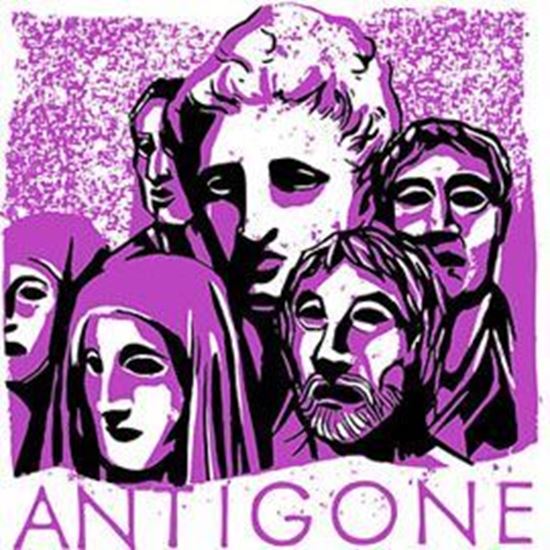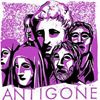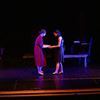









Antigone
Two brothers lie dead at the gates of the ancient city of Thebes, each killed by the other in the final battle of a bloody civil war fought for the throne of Thebes.
King Creon decrees that one brother, Eteocles, defender of Thebes, is to be given a hero’s burial. The other brother, Polyneices, leader of the rebel forces, is to be left lying where he fell outside the city gates, unburied, and unmourned. Anyone who violates Creon’s decree will be stoned to death.
Antigone, sister of the fallen brothers, believes that Creon’s decree is a dishonor to Polyneices and an offense to the gods, and she decides to bury Polyneices, no matter the consequences.
Productions
Behind The Scenes
With David Alberts
WHAT INSPIRED YOU TO WRITE THIS ADAPTATION?
I’ve always enjoyed reading ancient Greek plays, and I’ve directed a few of them (including Antigone), but I found most translations and adaptations of the plays slow-moving, formal, humorless, and very, very “talky.” The characters were often one-dimensional, and bringing them to life on stage seemed out of reach of many actors, particularly young actors, so I decided to do my own adaptation of Antigone. I kept the main plot, rounded out the characters, focused on the conflicts between the characters to bring out the themes of the play, modernized the language, cut the “talky” parts to keep the play moving, and added some humor in contrast to the life-and-death situations and consequences of the play.
WHAT'S YOUR FAVORITE PART OR LINE IN THE PLAY? WHY?
I enjoy the indomitable spirit of every character in the play. Each character knows who they are, and whether they accept or reject their place in their world, they fearlessly express themselves according to their own personality and principles.
My favorite lines in the play:
CREON: You must learn your place in the world, Antigone.
ANTIGONE: It’s you, Lord Creon, who must learn my place in the world.
WHAT WAS THE MOST DIFFICULT PART IN CREATING THIS ADAPTATION?
Since the plot of Antigone is fairly straightforward and uncomplicated, I needed to avoid “telegraphing” the plot while sustaining the conflicts between and among the characters. I also needed to avoid being too “preachy” about the underlying themes of the play, while keeping the timeless questions of fate vs. free will, the corruption of power, gender roles, and the needs of the state vs. the rights of the individual relevant to young people and to a modern audience.
WHAT DID YOU TRY TO ACHIEVE WITH THIS ADAPTATION?
I tried to make Sophocles’ play accessible for young actors to perform, and at the same time make it more understandable and accessible to a modern audience. In ancient Greece, people went to plays to listen to how the playwright presented the moral and ethical lessons of the play, not to watch what happens. For the most part, they already knew what happens. Many Greek plays, including Antigone, are based on myths and legends that the audience knew since childhood, so the plot of the play was secondary to the “message” of the play. A modern audience needs to be engaged by the plot and understand the message of the play, which are what I hope I accomplished in my adaptation.
DO YOU HAVE ANYTHING ELSE YOU'D LIKE TO ADD?
What happens to Ismene, the only survivor of the house of Oedipus?
